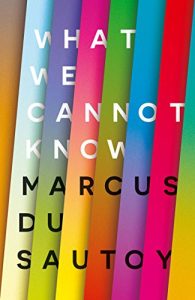Q: From the blogs and articles on Advaita, it seems like Scriptures are the basis from which everything is derived. If Scriptures were also written by humans, why is it considered sacred? Why can’t we independently come to same conclusions completely discarding scriptures?
e.g. Why couildn’t Vivekananda or Ramana Maharishi state something original about Self without reference to scriptures? All we see is a definition of Self without knowing the process by which it has been arrived at. I feel I am no different from the guy who slaughters innocent people because something is stated in a Book.
A (Dennis): Upanishadic material was passed down by word of mouth long before it was written down. From teacher to disciple; from those who knew to those who did not. The disciple trusts that the teacher will explain things until such time as the disciple realizes the truth. The seeker is specifically asked to use reason and own experience to validate what is said. If what is initially taken on trust is found to be invalid, it is rejected. If it is contrary to reason, it is rejected.
How does this process differ from science? Should you re-prove/re-derive all of the scientific laws from first principle and own experiments before you accept them? And if something is true, and fully understood by those who have gone before, how can one state something ‘original’? Moreover, why should one try? If teacher-seeker tradition over thousands of years have established an optimal way of passing on knowledge, isn’t it the height of arrogance to think one could do better?


 Notes on Shankara’s examination of the nature of ‘Error’ in the introduction to the brahmasUtra.
Notes on Shankara’s examination of the nature of ‘Error’ in the introduction to the brahmasUtra. I came across this essay last week. I don’t actually remember writing it, although the file was dated Feb of this year! (My memory must be deteriorating faster than I thought!) Anyway, since everyone (who contributes these days) seems to be particularly interested in Consciousness and scientific views, it seemed a good idea to post it. Apologies if I have already posted it somewhere before…
I came across this essay last week. I don’t actually remember writing it, although the file was dated Feb of this year! (My memory must be deteriorating faster than I thought!) Anyway, since everyone (who contributes these days) seems to be particularly interested in Consciousness and scientific views, it seemed a good idea to post it. Apologies if I have already posted it somewhere before…